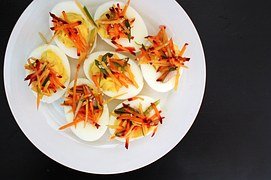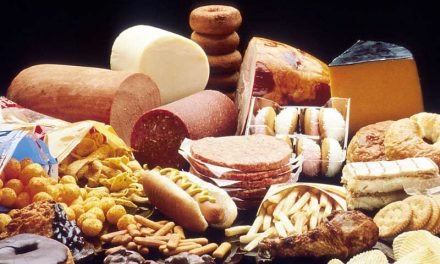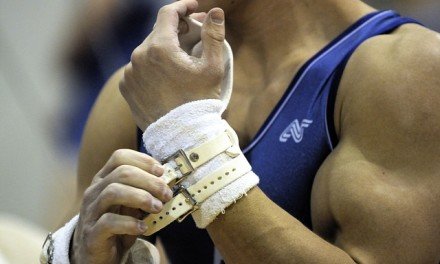We all try different ways to lose extra fat. Workouts, cardio exercises, yoga, and a balanced diet. Here we describe a special kind of diet which gives weight loss a healthy boost.
What is a KETO diet?
There are three dimensions to ketogenic diet:
- High fat
- Adequate protein
- Low carbohydrates
It was designed by Dr. Russell Wilder at the famed Mayo Clinic for the treatment of epilepsy. It is known by different names – ketogenic diet, low carb diet, low carb high fat (LCHF). It is beneficial for those who are trying to lose body fat and maintain blood sugar levels.
The Mechanism of weight loss
When you eat carbohydrates, whether in the form of bread, rice, sugar, potatoes etc.; your body breaks it down to the simplest molecule GLUCOSE, for easy conversion and use as energy. Our normal day-to-day diet being typically rich in carbohydrates, the body uses glucose as the main form of energy for powering itself.
However, when you lower the intake of carbohydrates in your diet, the body is forced to go on a process called KETOSIS.
Ketosis is a natural process which human body initiates, to kick into ‘survival mode’ when there is scarcity of food. During this state, ketones are produced from breaking down of fats in the liver. Ergo, stored fat of body burns.
When it is about energy, the body prefers to break down fats or carbohydrates for fuel and save protein for other processes, like building muscle. But when the level of carbohydrates are reduced, the liver converts fats into fatty acids and ketones which replace glucose as an energy source. This helps to burn excessive fat and hence reduce in the body.
Set up your KETO Diet
Though the composition of a KETO diet varies from individual to individual depending upon body profile, a general profile has following components:
FAT : 70-75%
PROTEINS : 15-20%
CARBOHYDRATES : 5-10%
Carbohydrates should mostly come from vegetables, nuts and dairy products. Low carb, dark green and leafy vegetables are the best choice.
Some low carb vegetables that can be included in your diet are
spinach, lettuce, broccoli, cauliflower and cabbage.
Some Keto snack options : Almonds, walnuts, cheddar and mozzarella cheese, avocados, devilled eggs, cream cheese, and berries.
Benefits of KETO diet
- Weight loss: Carbohydrates tend to retain water in the body. When there is a low level of insulin in the body as a result of a low-carb diet, the kidneys start shedding excess sodium. This, in turn, flushes excess water from the body, leading to rapid weight loss in the first week or two.
- Higher Satiety: low-carb diets reduce your appetite, as proteins and fats are much more filling; and satiate the hunger centers of the brain for a longer duration than carbohydrates.
- Reduction of Belly: low-carb diets are very effective in reducing visceral fats or abdominal fat. This, in turn, reduces the harmful kind of fat in the body.
- Reduction of Triglycerides: Level of fasting triglycerides in blood is an indicator of heart diseases. Compared to low-fat diets, low-carb diets tend to have a very dramatic reduction in blood triglycerides.
- Increase in HDL levels: High-Density Lipoprotein (HDL) or ‘good’ cholesterol, are fat molecules, which carries cholesterol away from the body to the liver for re-use/ excretion from the body. Low-carb diets are rich in fat, which leads to an impressive increase in blood level of HDL.
- Reduction of blood sugar and insulin level: carbohydrates are broken down to glucose in the body. When glucose enters the blood stream, it elevates blood sugar levels, which in turn increases insulin in the body. The best way to lower blood sugar and insulin level is to decrease the intake of carbohydrate. This also helps in controlling and treatment of Type-II diabetes.
- Helps control Blood Pressure: studies have shown that reduction intake of carbohydrates leads to significant reduction of Blood Pressure (B.P.), which in turn leads to reduced risk of other diseases.
- Therapeutic for several Brain Disorders: along with glucose, the brain also burns ketones. This mechanism behind keto-diets has been used to treat epilepsy in children who don’t respond to drug treatment.
Effects of KETO Diet on body
Though Keto diet is effective in weight loss, an initial phase of Keto diet might make you prone to some of the following effects:
A headache, dizziness, keto-flu (flu-like symptoms), aggravation.
This is because your body has always been in a habit of breaking down carbohydrates to use as energy. A sudden depletion in glucose and increase in fats is something new for the body to deal with. As the body is induced into a ketogenic state, it will deplete all the glycogen in the muscles and this causes lack of energy and other above-mentioned symptoms.
As Ketosis has a diuretic effect on the body, the electrolytes are flushed out making the body feel weak. Keep in mind to drink a lot of water and maintain good sodium intake.
Though you may feel a lack of performance and stamina initially, but as the body adapts to Ketosis, everything will be restored to its normal level. The adaptation may take 1-2 weeks.
Who should avoid KETO Diet
- People with kidney problems should avoid keto-diet. A high protein diet puts added strain on the kidneys, which could worsen its function.
- A high protein diet leads to higher level of calcium in the urine. Some experts believe that this could make you prone to osteoporosis and kidney stones.









